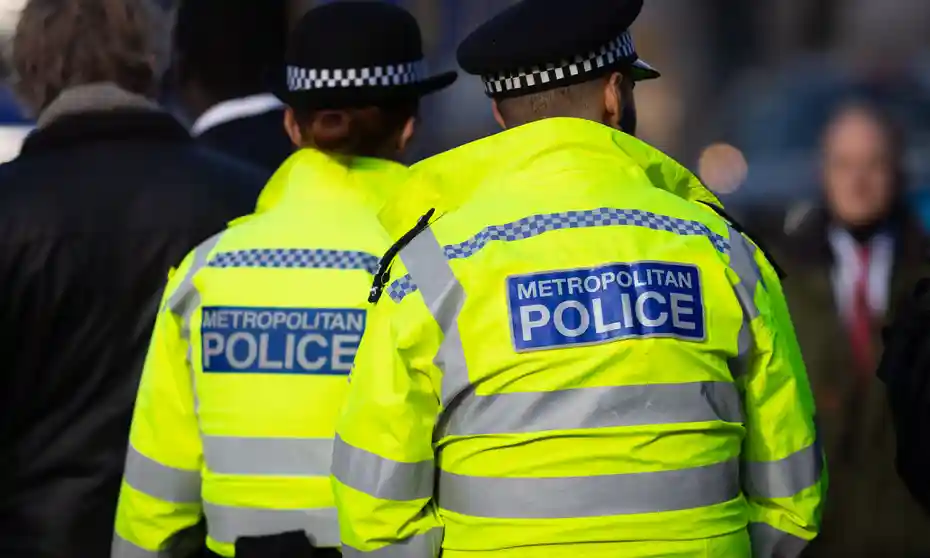The saying “one bad apple spoils the barrel” is a metaphor that means one negative or corrupt element can infect and negatively impact a larger group or system. The idea is that a single rotten apple releases gases that can spoil the other apples in the barrel, and the same can happen in a group of people or an organisation where one negative influence can have a spreading effect.
Like in any large organization, there can be individuals within the Metropolitan Police who engage in negative or unethical behavior. However, it’s important to note that the vast majority of police officers serve with integrity and professionalism. The existence of a few “bad apples” does not define the entire organization, but it’s crucial for law enforcement agencies to have mechanisms in place to identify and address any instances of misconduct. The Metropolitan Police, like many other police departments, have systems for investigating and disciplining officers who engage in wrongdoing.
It’s difficult to say exactly what could have been done to catch David Carrick earlier, as each case is unique and complex. However, some general steps that can help prevent sexual assault and catch perpetrators sooner include:
- Encouraging victims to report sexual assault: Creating a supportive and non-judgmental environment for survivors can encourage them to come forward and report the crime.
- Improving police response to sexual assault reports: Training law enforcement on trauma-informed approaches and the importance of thoroughly investigating sexual assault cases can lead to better outcomes for survivors.
- Building stronger relationships between law enforcement and communities: Establishing trust and communication between the police and the communities they serve can lead to increased reporting of crimes and more cooperation in investigations.
- Enhancing forensic evidence collection and analysis: Improving the process of collecting, preserving, and analyzing forensic evidence can lead to the identification of perpetrators and more successful prosecutions.
- Sharing information between agencies: Collaboration between law enforcement, social service organizations, and other relevant agencies can help identify patterns and detect potential offenders more quickly.
It’s worth noting that catching perpetrators of sexual assault is a complex and challenging process, and there is always room for improvement.
The Metropolitan Police is a large organisation with over 40,000 officers, and like any large organization, there have been instances of individual misconduct and corruption. However, it is not accurate or fair to label the entire organization as “institutionally corrupt.” The Metropolitan Police have systems and procedures in place to identify and address instances of corruption, and many officers within the organization serve with integrity and professionalism.
It’s important to acknowledge that allegations of corruption and misconduct within any law enforcement agency should be taken seriously and thoroughly investigated. However, it’s also important to recognise the hard work and dedication of the vast majority of officers who serve their communities with honor and respect.
There have been concerns and allegations of institutional misogyny within the Metropolitan Police. Institutional misogyny refers to patterns of behaviour, policies, and practices within an organization that result in unequal treatment and discrimination based on gender.
There have been reports of gender-based discrimination and harassment within the Metropolitan Police, including a lack of support for female officers and unequal treatment in areas such as promotions and assignments.
However, it’s worth noting that the Metropolitan Police, like many other law enforcement agencies, have taken steps in recent years to address these issues and improve diversity, equity, and inclusion within the organization. This includes training programs, reforms to address harassment and discrimination, and increased efforts to recruit a more diverse workforce.
It’s important to continue to monitor and address instances of gender-based bias and discrimination within the Metropolitan Police and all law enforcement agencies, as well as to promote fairness, equality, and justice for all.
It is a complex and significant question to consider alternatives to the Metropolitan Police. The Metropolitan Police is a large and established law enforcement agency with a long history of serving the Greater London area.
If the Metropolitan Police were to be replaced, it would likely involve significant changes to the criminal justice system and law enforcement in the UK. Possible alternatives that have been proposed include community-led policing, restorative justice programs, and alternative forms of conflict resolution.
It’s important to note that there is no one-size-fits-all solution, and any changes to the Metropolitan Police or the criminal justice system would need to be carefully considered and evaluated based on their potential impact on public safety and community well-being.
Ultimately, the best solution will likely involve a combination of approaches and a close examination of the unique needs and challenges of the communities being served.
